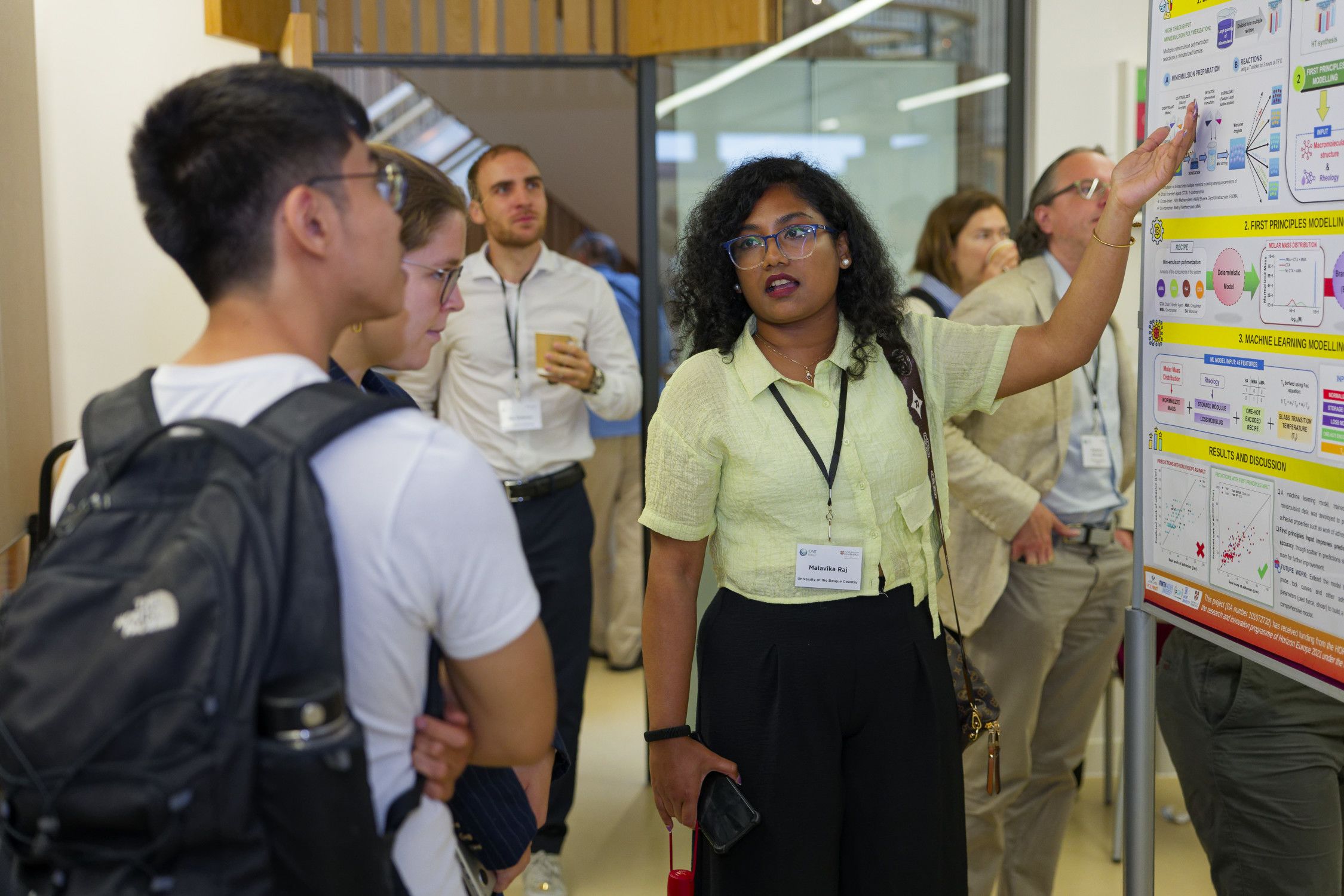Full house for MABC25
AI in chemical engineering comes of age with full capacity conference in department

Last week’s Machine Learning and AI in Bio(Chemical) Engineering Conference – MABC25 – drew a packed audience to the Department of Chemical Engineering and Biotechnology (CEB), with registration closing weeks early for the first time.
“This is the first time we’ve had to close registration early, as we reached max capacity,” said Professor Alexei Lapkin, who leads the organising committee. “It’s also the first year the event has been formally organised by iDMT – the Centre of Excellence jointly run by CEB and Chemistry.”
The conference was supported by the Royal Society of Chemistry (RSC), AstraZeneca, Singapore Global Network and CDDVault.
Talks ranged from physics-informed and Bayesian optimisation of chemical reactions to AI-driven polymer manufacturing and drug discovery. Presentations covered advances in autonomous laboratories, large language models for scientific reasoning, and cutting-edge generative models, including flow-based and diffusion-based methods for solubility prediction and other scientific applications. A lot of the work was presented publicly for the first time.
Keynotes came from Professor Garrett M. Morris (Oxford) and Professor Kim E. Jelfs (Imperial), with invited speakers from across the UK and Europe – including Ulm, Greifswald, Zurich, Aachen, and the Basque Country. A joint talk by PhD students from ETH Zurich and Stanford highlighted the spirit of international collaboration.
Industry was also well represented, with an invited talk from AstraZeneca on selectivity prediction for reactions. BIOVIA (part of Dassault Systèmes) also presented on using LLMs for formulation design, while Accelerated Materials led a hands-on workshop on lab automation and smart lab integration.
“There’s a sense the field is maturing,” said Lapkin. “It’s no longer just about potential – we’re seeing genuinely high-quality work across the community.”
First launched as a Cambridge workshop, MABC has grown into one of the UK’s leading meetings for researchers applying machine learning to chemical and biochemical problems. This year’s turnout – and the number of new ideas shared – suggests that momentum is only growing.
Professor Alexei Lapkin (centre) leads the organising committee for MABC.
Professor Alexei Lapkin (centre) leads the organising committee for MABC.
This year’s MABC also featured a dedicated session organised jointly with the CINEMA network, a European consortium funded by the Marie Skłodowska-Curie Actions (Horizon Europe). The CINEMA initiative brings together doctoral candidates and postdoctoral researchers working on the application of machine learning and AI modelling techniques for polymer synthesis, polymerisation control, and the prediction of polymer-related properties. The session highlighted collaborative efforts across institutions and showcased recent advances from early-career researchers driving innovation in data-driven polymer science.
Thirty posters were presented, with prizes sponsored by the awarded by the RSC for best talk and best poster:
- Best talk: Calvin Yiu (University of Bristol)
Web-IMPRESSION: Graph Transformer Network for Fast, Accessible, DFT Accurate NMR Predictions for Chemical Shifts and Couplings at Your Fingertips - Best poster: Zheng Jie Liew (University of Cambridge)
Learning Thermodynamic Phase Transitions and Solubility Limits with Semantically Coupled Diffusion
Driven by curiosity. Driving change.
University quick links
UniofCam Microsoft Office 365
CamBridgeSens
CamCORS
CamSIS
Lookup Service
Moodle
Contact us
Department of Chemical Engineering and Biotechnology
Cambridge West
Philippa Fawcett Drive
Cambridge
CB3 0AS
Tel: +44 (0)1223 748999




